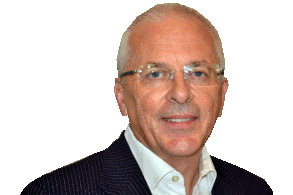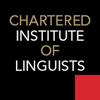Here is my CV. With four significant, contrasting careers in one lifetime - so far - it's unusual. If you want to read the story behind it, scroll down the page or click on My Story.
Career
|
Ad Capita Executive Search - Managing Partner
Top 10 executive search and consulting firm in Portugal Founder, with Rui Borges, of what became a top 10 executive search firm in Portugal. Member of the INAC global network, with an enviable portfolio of multinational company clients, including BMW, Galp Energia, Siemens, Fortis Bank. |
2001-10
|
Education
Other qualifications and skills
|
Native English. Fluent in Portuguese and French. Good Spanish.
Advanced IT skills, including most image software and some coding. |
Memberships

SPEA - Portuguese Society for the Study of Birds
My story
It's been quite a ride. Four significant careers, each completely different from the one before. See the details of my CV above or visit my LinkedIn profile.
House of Commons
On leaving Oxford University I scraped through the gruelling UK Civil Service Fast Stream selection process and chose the House Commons because I wanted to be a part of the newly created departmental Select Committees, which would give Parliament much greater power to investigate the work of government. My first three years were actually spent learning about the legislative process in a post dating back to mediaeval times, with the mildly silly title of "bottom boy of the Public Bill Office" (honest - even women who held the post took this title).
I then moved to my first position on a Select Committee, as Assistant Clerk to the Education, Science & Arts Select Committee under the wonderful then Clerk of the Committee, Jim Hastings. As I drafted my first ever select committee report (on education in prisons) this brilliant but kindly man, a scholar with Gypsy blood and the most extensive knowledge of classical music I have ever come across, taught me to write - a skill I thought I had honed at university but his insight showed how much I still had to learn.
The terrible misfortune of a colleague's car accident catapulted me early into being Clerk of the Environment Select Committee. Among other inquiries, I got my big break, running a major investigation into radioactive waste, in particular the Sellafield nuclear reprocessing plant. This was a highly controversial subject. We took evidence from a wide range of organisations and people and visited nuclear sites in the UK, Germany, Sweden, France and the United States, as well as a memorable, if rather dull, joint meeting with a Congressional Committee on Capitol Hill. Writing the report was a daunting but very satisfying challenge. The Committee members liked it and we got excellent coverage in the media and promises of significant changes to government policy.
By another stroke of luck I was then offered the job of Secretary to the Parliamentary Delegations to NATO and the Council of Europe. As someone who had always loved travel, I jumped at the chance. I met the then Head of International Relations from the Portuguese Parliament and, a few months later, we married and I left the House of Commons and my life in the UK to move to Portugal, a country I had never visited before meeting her.
MacAndrews Portugal
To be frank, a degree in Philosophy and Psychology, even from Oxford, no Portuguese and no experience in business made my CV pretty useless on arrival in Lisbon. Still, I sent lots of letters (remember those?) and a creative and inspirational Director of what was then the Cunard Ellerman shipping line, Mick Crews, was intrigued by my background and gave me a junior sales manager job at their subsidiary in Portugal.
Once again, I had a lot of learning to do. I found I enjoyed selling, although I was never that good, After a year, I realised that I had been more or less forgotten by head office and so, when it became apparent they had a succession problem on retirement of the then Managing Director in Lisbon, I flew to London and cockily told them why I thought I could do the job and turn around their ailing subsidiary in the bottom left hand corner of Europe. To add to my hubris, I told them if I didn't succeed in 18 months, they'd be free to fire me. They agreed.
In many ways, taking on a company that is in a serious mess is less challenging than taking on a success. It is much easier to make a big impact: turnaround or liquidation. It was exhilarating and, three years later, we were among the top five container shipping agencies in Portugal, with an enviable portfolio of shipping lines spanning every corner of the globe and the most beautiful offices in a creatively renovated, nineteenth century boiler-making warehouse down on the waterfront.
Consulting and Ad Capita Executive Search
As I headed towards a decade in shipping I became increasingly aware that, firstly, I had no real technical business skills and, secondly, if I stayed I would be the same big fish in a small pond for the rest of my career. I was too old for several business schools but was accepted by Cranfield School of Management for their full time MBA. My wife generously put her career on hold and we moved with our family to the wet plains of Bedfordshire. It was an intense and wonderful experience for the whole family. The MBA taught me so much, mostly unexpected skills, although almost nothing about how to manage a business.
For family reasons we had to move back to Portugal and I started from zero for the second time. Even with a top ten MBA in my pocket, my British qualifications (by now with fluent Portuguese), still got me nowhere fast in the very closed Portuguese job market. I started Clive Bennett & Associates and "ducked and dived" - the expression of an old East End of London friend of mine - for a year or two in coaching, consulting, training and translating. I gained a translating diploma from the prestigious Chartered Institute of Linguists in London and a Diploma in Training in Lisbon. One day, Rui Borges, the recruiter who had found my replacement as MD at MacAndrews, called me and invited me to startup a new headhunting firm. He thought that my British academic and business background would be a competitive advantage in the market for multinational business in Portugal.
So, I set up Ad Capita Executive Search. The launch date a week before 9/11 was unfortunate but, after a rocky start, we thrived. To help build our brand, with support from Chris Brewster, then Professor of International Human Resources at Cranfield, I published a series of studies of management culture. The first one about Portugal, was co-branded Ad Capita /Cranfield School of Management and was a great success - in the media and in academia. For at least a decade the "Ad Capita report" was required reading in many business schools in Portugal: what a boon for our brand! I did similar surveys in Ireland, Bulgaria, Czech Republic, Poland, Hungary, Romania and Slovakia. The methodology has also since been used in the Middle East.
Our biggest and most exciting executive search assignment was the recruitment of a complete team for the new national sales and marketing operation of BMW Portugal. Over a period of a year we recruited 50 staff, from board level all the way to the receptionist. We had to process 15,000 applications and I am proud to say that each one got a personalised response at all stages: one of the many reasons why I find recruiters' discourtesy in not even acknowledging candidates' applications so disgraceful.
MGI Worldwide
Once again heading towards a decade in the business, the financial crisis hit us very badly. After a string of excellent assignments, executive recruitment ground to a halt in Portugal. I kept the company afloat with some useful coaching and consulting business in the pharmaceutical sector but I realised we could not carry on. I was headhunted myself by a former headhunter, the then CEO of MGI Worldwide, Clive Miéville, to take on the role of European Executive Director in one of the world's top 20 international accountancy networks. I jumped at the chance to start career number four.
I loved this new job, travelling around Europe, using my linguistic, cross-cultural and leadership skills. In my second year I was asked to add a newly created role as International Marketing Director and found that to be an exciting task, with the potential to change the strategic and competitive direction of MGI Worldwide completely. A year later I was offered the position of global CEO. I dropped all my remaining consulting and coaching business and accepted. And that is what I did for nearly 10 years, until my retirement. It was a fascinating role, which made the fullest use of my business, leadership, management and academic skills. I transformed our market positioning, greatly enhanced the brand and led a successful merger to double MGI Worldwide's size.
Retired but active
I retired from my role as global CEO of MGI Worldwide on 30 June 2020. I am still active, as a non-executive director and volunteer. I spend my time between my base in Lisbon, Portugal, our farm in the countryside near Alcobaça, about 100km North of Lisbon, and London.
I am a lucky man.
House of Commons
On leaving Oxford University I scraped through the gruelling UK Civil Service Fast Stream selection process and chose the House Commons because I wanted to be a part of the newly created departmental Select Committees, which would give Parliament much greater power to investigate the work of government. My first three years were actually spent learning about the legislative process in a post dating back to mediaeval times, with the mildly silly title of "bottom boy of the Public Bill Office" (honest - even women who held the post took this title).
I then moved to my first position on a Select Committee, as Assistant Clerk to the Education, Science & Arts Select Committee under the wonderful then Clerk of the Committee, Jim Hastings. As I drafted my first ever select committee report (on education in prisons) this brilliant but kindly man, a scholar with Gypsy blood and the most extensive knowledge of classical music I have ever come across, taught me to write - a skill I thought I had honed at university but his insight showed how much I still had to learn.
The terrible misfortune of a colleague's car accident catapulted me early into being Clerk of the Environment Select Committee. Among other inquiries, I got my big break, running a major investigation into radioactive waste, in particular the Sellafield nuclear reprocessing plant. This was a highly controversial subject. We took evidence from a wide range of organisations and people and visited nuclear sites in the UK, Germany, Sweden, France and the United States, as well as a memorable, if rather dull, joint meeting with a Congressional Committee on Capitol Hill. Writing the report was a daunting but very satisfying challenge. The Committee members liked it and we got excellent coverage in the media and promises of significant changes to government policy.
By another stroke of luck I was then offered the job of Secretary to the Parliamentary Delegations to NATO and the Council of Europe. As someone who had always loved travel, I jumped at the chance. I met the then Head of International Relations from the Portuguese Parliament and, a few months later, we married and I left the House of Commons and my life in the UK to move to Portugal, a country I had never visited before meeting her.
MacAndrews Portugal
To be frank, a degree in Philosophy and Psychology, even from Oxford, no Portuguese and no experience in business made my CV pretty useless on arrival in Lisbon. Still, I sent lots of letters (remember those?) and a creative and inspirational Director of what was then the Cunard Ellerman shipping line, Mick Crews, was intrigued by my background and gave me a junior sales manager job at their subsidiary in Portugal.
Once again, I had a lot of learning to do. I found I enjoyed selling, although I was never that good, After a year, I realised that I had been more or less forgotten by head office and so, when it became apparent they had a succession problem on retirement of the then Managing Director in Lisbon, I flew to London and cockily told them why I thought I could do the job and turn around their ailing subsidiary in the bottom left hand corner of Europe. To add to my hubris, I told them if I didn't succeed in 18 months, they'd be free to fire me. They agreed.
In many ways, taking on a company that is in a serious mess is less challenging than taking on a success. It is much easier to make a big impact: turnaround or liquidation. It was exhilarating and, three years later, we were among the top five container shipping agencies in Portugal, with an enviable portfolio of shipping lines spanning every corner of the globe and the most beautiful offices in a creatively renovated, nineteenth century boiler-making warehouse down on the waterfront.
Consulting and Ad Capita Executive Search
As I headed towards a decade in shipping I became increasingly aware that, firstly, I had no real technical business skills and, secondly, if I stayed I would be the same big fish in a small pond for the rest of my career. I was too old for several business schools but was accepted by Cranfield School of Management for their full time MBA. My wife generously put her career on hold and we moved with our family to the wet plains of Bedfordshire. It was an intense and wonderful experience for the whole family. The MBA taught me so much, mostly unexpected skills, although almost nothing about how to manage a business.
For family reasons we had to move back to Portugal and I started from zero for the second time. Even with a top ten MBA in my pocket, my British qualifications (by now with fluent Portuguese), still got me nowhere fast in the very closed Portuguese job market. I started Clive Bennett & Associates and "ducked and dived" - the expression of an old East End of London friend of mine - for a year or two in coaching, consulting, training and translating. I gained a translating diploma from the prestigious Chartered Institute of Linguists in London and a Diploma in Training in Lisbon. One day, Rui Borges, the recruiter who had found my replacement as MD at MacAndrews, called me and invited me to startup a new headhunting firm. He thought that my British academic and business background would be a competitive advantage in the market for multinational business in Portugal.
So, I set up Ad Capita Executive Search. The launch date a week before 9/11 was unfortunate but, after a rocky start, we thrived. To help build our brand, with support from Chris Brewster, then Professor of International Human Resources at Cranfield, I published a series of studies of management culture. The first one about Portugal, was co-branded Ad Capita /Cranfield School of Management and was a great success - in the media and in academia. For at least a decade the "Ad Capita report" was required reading in many business schools in Portugal: what a boon for our brand! I did similar surveys in Ireland, Bulgaria, Czech Republic, Poland, Hungary, Romania and Slovakia. The methodology has also since been used in the Middle East.
Our biggest and most exciting executive search assignment was the recruitment of a complete team for the new national sales and marketing operation of BMW Portugal. Over a period of a year we recruited 50 staff, from board level all the way to the receptionist. We had to process 15,000 applications and I am proud to say that each one got a personalised response at all stages: one of the many reasons why I find recruiters' discourtesy in not even acknowledging candidates' applications so disgraceful.
MGI Worldwide
Once again heading towards a decade in the business, the financial crisis hit us very badly. After a string of excellent assignments, executive recruitment ground to a halt in Portugal. I kept the company afloat with some useful coaching and consulting business in the pharmaceutical sector but I realised we could not carry on. I was headhunted myself by a former headhunter, the then CEO of MGI Worldwide, Clive Miéville, to take on the role of European Executive Director in one of the world's top 20 international accountancy networks. I jumped at the chance to start career number four.
I loved this new job, travelling around Europe, using my linguistic, cross-cultural and leadership skills. In my second year I was asked to add a newly created role as International Marketing Director and found that to be an exciting task, with the potential to change the strategic and competitive direction of MGI Worldwide completely. A year later I was offered the position of global CEO. I dropped all my remaining consulting and coaching business and accepted. And that is what I did for nearly 10 years, until my retirement. It was a fascinating role, which made the fullest use of my business, leadership, management and academic skills. I transformed our market positioning, greatly enhanced the brand and led a successful merger to double MGI Worldwide's size.
Retired but active
I retired from my role as global CEO of MGI Worldwide on 30 June 2020. I am still active, as a non-executive director and volunteer. I spend my time between my base in Lisbon, Portugal, our farm in the countryside near Alcobaça, about 100km North of Lisbon, and London.
I am a lucky man.














